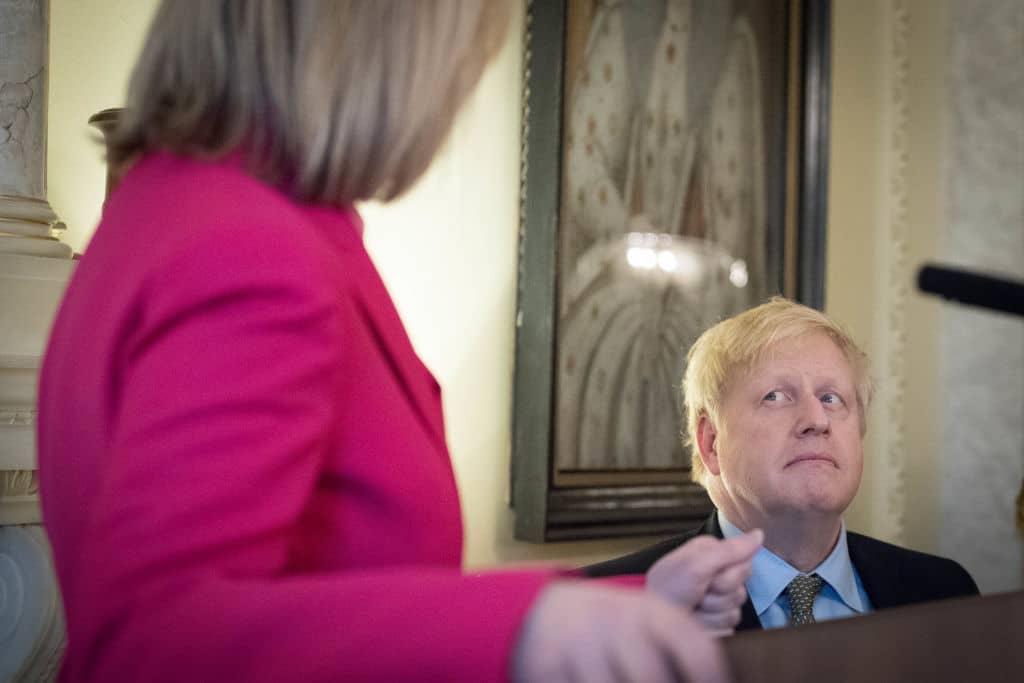‘It’s fair to give wealthiest more money back – Truss’. That’s the headline on a BBC News story following Liz Truss’ interview with Laura Kuenssberg today, where she was asked about the merits of cutting National Insurance.
Don’t worry if you missed the headline though. You’ll get plenty more chances to see it when Labour MPs repeat it over and over again, offering it as proof that the Tories are the party of the rich, a tag that Conservative leaders have sought to drop for the last two decades.
So striking is the prospect of a would-be Tory leader clearly defending a policy that benefits the rich more than the poor, it may be tempting for some to see that comment as a ‘gaffe’. It’s not, though. It’s a considered statement of intent, and possibly the most important one of the whole long leadership saga.
Truss’ central argument is that tax is a drag on growth. Cutting tax spurs growth – because it leaves people with more of their own money, which they spend and invest, leading to more economic activity and a general increase in prosperity. Everyone gets better off, even if their gains aren’t of similar size. A rising tide lifts all boats, if you like – and that is more important than whether some boats are bigger than others.
Truss is badged as the continuity candidate, yet her economic philosophy appears to be entirely different to the one set out by Boris
The key line from Truss is here:
‘To look at everything through the lens of redistribution I believe is wrong because what I’m about is about growing the economy and growing the economy benefits everybody.‘
This isn’t the time or place for a discussion of the economic arguments at play here. What’s more immediately interesting is the politics of that growth-first position. Because for all that Truss is badged as the continuity candidate, her economic philosophy appears to be entirely different to the one set out by Boris Johnson.
Now, discussing Johnson’s economic ideas is a tricky affair, because he didn’t really have any: no prime minister since Tony Blair has matched his lack of interest in economics. But insofar as there was such a thing as Borisnomics, it was based on the view that no, actually, ‘growing the economy’ doesn’t benefit everyone.
Here’s Johnson in March 2021, setting out a ‘plan for growth’:
‘The last few decades have seen increased prosperity in London and the
South East, but without commensurate improvements in the rest of the
UK. The primary objective of this government is to change that.’
For all that Johnson is sometimes seen as a radical departure from the Tory norm, his economic-political stance is really just the logical development of the thinking started under Theresa May. In that view, two decades of growth after 1997 had been led by the south-east and the financial services industry but had failed to fully benefit some people and places; the Conservatives’ economic and political mission was therefore to deliver a different sort of economy where growth does indeed benefit everyone – and where everyone feels that growth.
Here I’m reminded of one of the best vox pop quotes of recent years,
reported by my friend Anand Menon in 2016 during a talk in Newcastle
about the economic consequences of Brexit. When Anand outlined the
argument made by some economists that leaving the EU would curb
GDP, a woman in the audience shouted back: ‘That’s your GDP, not
ours’.
Persuading that lady – and others who voted Brexit and live outside the south-east of England – to support the Conservatives was the defining mission of Boris Johnson’s government. Hence Levelling Up, the Red Wall and the various other contributions to the political language that are his legacy. Hence spending more and, sometimes, taxing more to deliver services and other things in those places where the benefits of economic growth were sometimes hard to feel. The NI rises that Truss is promising to reverse were just one result of that mission.
Yet here we are, very likely just hours away from the Conservatives who backed Boris Johnson (and who still apparently admire him) choosing as their leader a woman who does not appear to share his central and defining judgment about economic growth and its benefits. Johnsonism was about ‘that’s your bloody GDP, not ours.’ Trussism is ‘GDP Uber Alles.’
She may have the blessing of Boris Johnson, many of his allies and the members who backed him. But when it comes to growth and the economy, Liz Truss is offering anything but continuity.







Comments